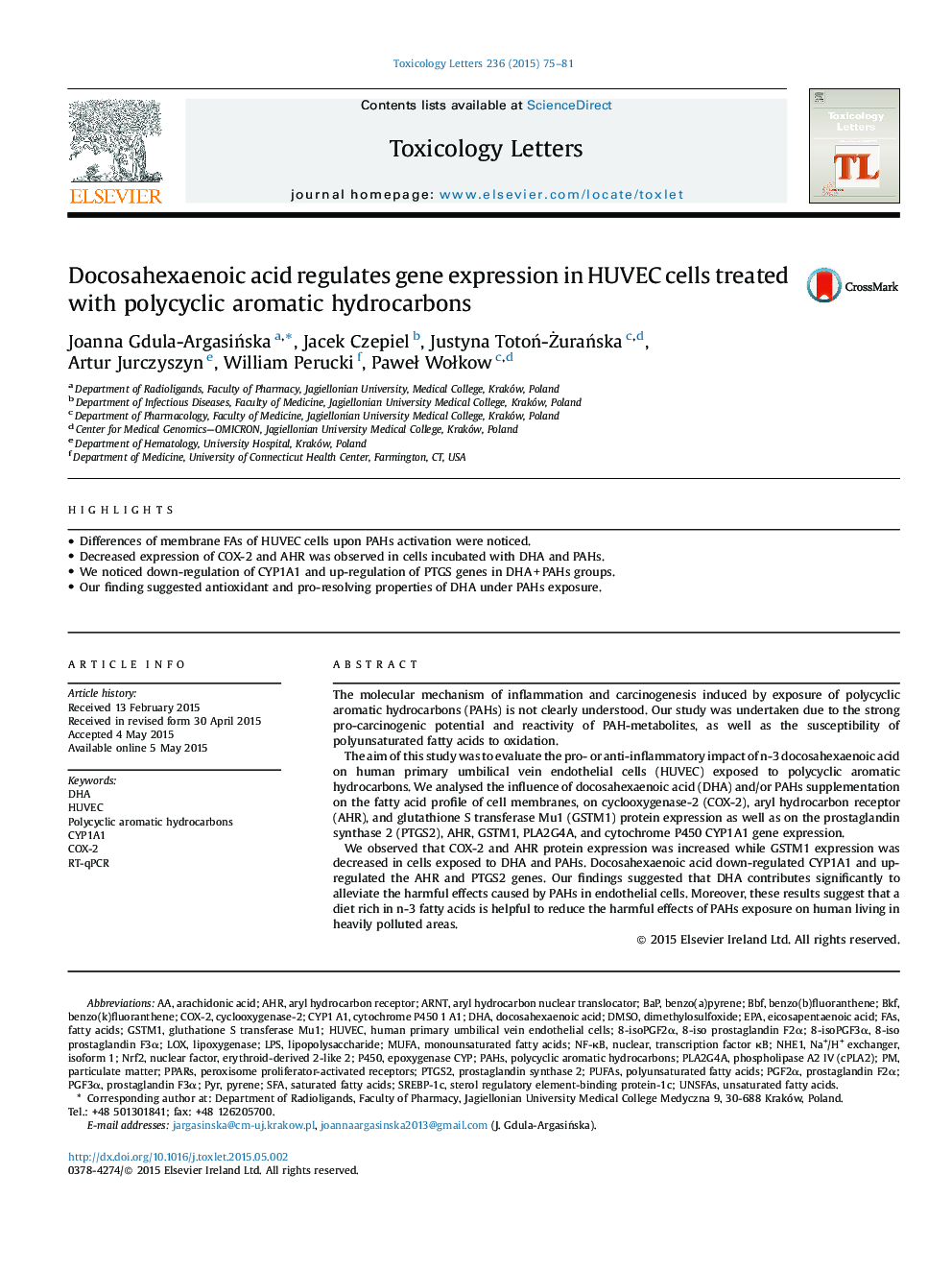| کد مقاله | کد نشریه | سال انتشار | مقاله انگلیسی | نسخه تمام متن |
|---|---|---|---|---|
| 2598653 | 1133143 | 2015 | 7 صفحه PDF | دانلود رایگان |

• Differences of membrane FAs of HUVEC cells upon PAHs activation were noticed.
• Decreased expression of COX-2 and AHR was observed in cells incubated with DHA and PAHs.
• We noticed down-regulation of CYP1A1 and up-regulation of PTGS genes in DHA + PAHs groups.
• Our finding suggested antioxidant and pro-resolving properties of DHA under PAHs exposure.
The molecular mechanism of inflammation and carcinogenesis induced by exposure of polycyclic aromatic hydrocarbons (PAHs) is not clearly understood. Our study was undertaken due to the strong pro-carcinogenic potential and reactivity of PAH-metabolites, as well as the susceptibility of polyunsaturated fatty acids to oxidation.The aim of this study was to evaluate the pro- or anti-inflammatory impact of n-3 docosahexaenoic acid on human primary umbilical vein endothelial cells (HUVEC) exposed to polycyclic aromatic hydrocarbons. We analysed the influence of docosahexaenoic acid (DHA) and/or PAHs supplementation on the fatty acid profile of cell membranes, on cyclooxygenase-2 (COX-2), aryl hydrocarbon receptor (AHR), and glutathione S transferase Mu1 (GSTM1) protein expression as well as on the prostaglandin synthase 2 (PTGS2), AHR, GSTM1, PLA2G4A, and cytochrome P450 CYP1A1 gene expression.We observed that COX-2 and AHR protein expression was increased while GSTM1 expression was decreased in cells exposed to DHA and PAHs. Docosahexaenoic acid down-regulated CYP1A1 and up-regulated the AHR and PTGS2 genes. Our findings suggested that DHA contributes significantly to alleviate the harmful effects caused by PAHs in endothelial cells. Moreover, these results suggest that a diet rich in n-3 fatty acids is helpful to reduce the harmful effects of PAHs exposure on human living in heavily polluted areas.
Journal: Toxicology Letters - Volume 236, Issue 2, 16 July 2015, Pages 75–81